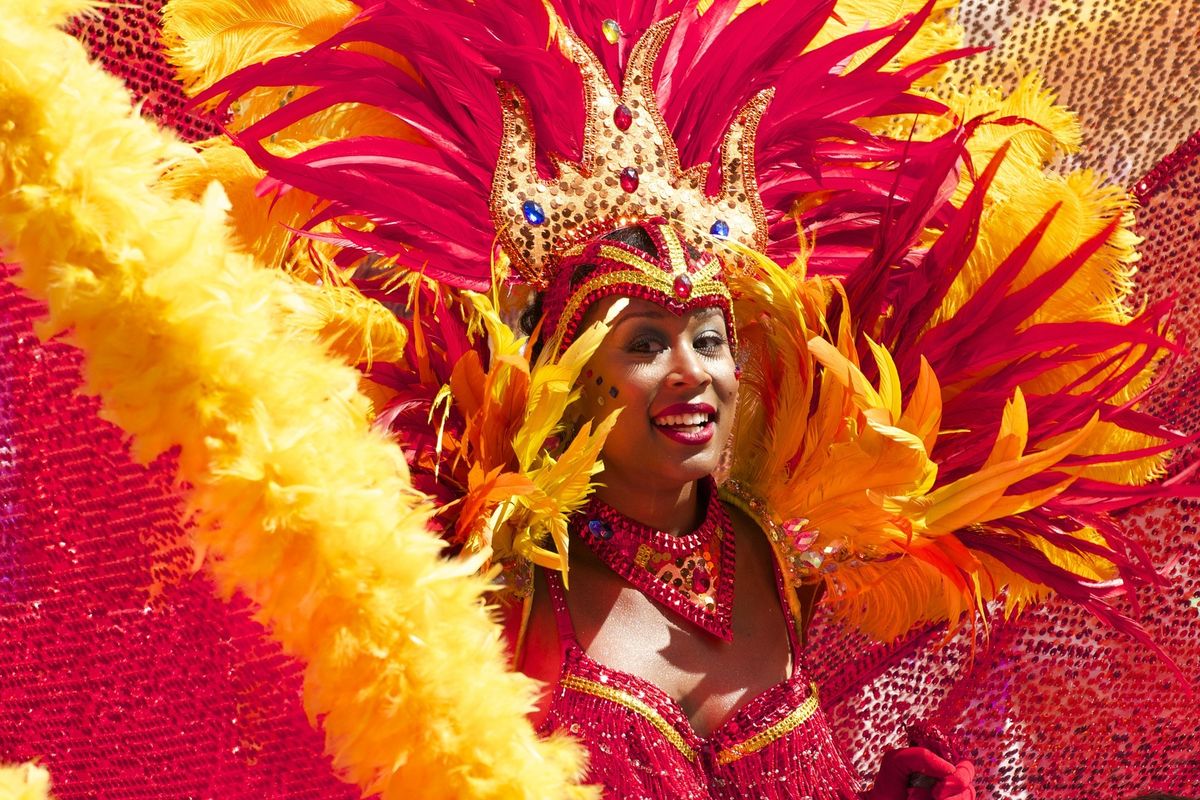15 Traditional Brazilian Dances That Will Amaze You

Brazil is a country bursting with rhythm and energy, where dance plays a huge role in its culture. From the lively streets of Rio de Janeiro to the vibrant festivals in Bahia, traditional Brazilian dances are a feast for the senses. These dances, steeped in history and tradition, tell stories of the nation's diverse heritage. Samba, with its infectious beats and lively moves, is perhaps the most famous. But there's more to Brazil than just samba. Have you heard of Forró, a dance that brings people together with its catchy accordion tunes? Or the martial art dance Capoeira, blending acrobatics and music? Each dance offers a glimpse into Brazil's soul, reflecting its rich cultural tapestry. Whether you're a dance enthusiast or just curious, these traditional Brazilian dances will leave you amazed and inspired.
Samba: The Heartbeat of Brazil
Samba is more than just a dance; it's a way of life in Brazil. With its lively rhythms and vibrant costumes, Samba captures the spirit of Brazilian culture. Originating in Rio de Janeiro, this dance is a must-see for anyone visiting the country.
Rio de Janeiro: Known as the birthplace of Samba, Rio's Carnival is the ultimate place to experience this dance in all its glory. The streets come alive with music, color, and energy.
Salvador: In Bahia, Samba takes on a unique Afro-Brazilian twist. The city hosts numerous Samba events, especially during its own Carnival celebrations.
Forró: A Dance of Romance
Forró is a popular dance in the northeastern regions of Brazil. It's a dance of love and connection, often performed in pairs. The music is catchy, and the steps are simple yet engaging.
Recife: Known for its vibrant Forró scene, Recife offers numerous dance halls where you can join in the fun and learn the steps from locals.
Fortaleza: This city hosts Forró festivals that attract dancers from all over the country. It's a great place to immerse yourself in the dance's romantic atmosphere.
Frevo: A Dance of Joy
Frevo is a high-energy dance that originated in Pernambuco. It's characterized by fast-paced movements and colorful umbrellas. Frevo is a dance that brings joy and excitement to any event.
Olinda: During Carnival, Olinda's streets are filled with Frevo dancers. The city's historic charm adds to the magic of this lively dance.
Recife: As the capital of Pernambuco, Recife is a hub for Frevo. The city's Carnival is a spectacular showcase of this energetic dance.
Capoeira: The Dance of Combat
Capoeira is a unique blend of dance and martial arts. It was developed by African slaves in Brazil as a form of self-defense disguised as dance. Today, it's a symbol of resistance and cultural pride.
Salvador: Known as the home of Capoeira, Salvador offers numerous schools where you can watch or even participate in Capoeira sessions.
São Paulo: This bustling city has a thriving Capoeira community. You can find performances and classes throughout the city.
Carimbó: The Dance of the Amazon
Carimbó is a traditional dance from the Amazon region. It's a dance that tells stories of the indigenous people and their connection to the land. The music is rhythmic, and the costumes are colorful.
Belém: As the capital of Pará, Belém is the perfect place to experience Carimbó. The city's festivals often feature this traditional dance.
Santarém: Located in the heart of the Amazon, Santarém offers a unique setting to enjoy Carimbó. The dance is often performed at local cultural events.
Bumba Meu Boi: A Dance of Folklore
Bumba Meu Boi is a folk dance that tells the story of a bull's death and resurrection. It's a theatrical performance that combines dance, music, and storytelling.
São Luís: This city is famous for its Bumba Meu Boi festivals. The performances are colorful and captivating, drawing crowds from all over.
Parintins: Known for its annual Boi Bumbá festival, Parintins is a must-visit for anyone interested in this unique dance. The festival is a grand celebration of folklore and culture.
Maracatu: The Dance of the Kings
Maracatu is a traditional dance from Pernambuco that combines African and indigenous influences. It's a dance of royalty, often performed during Carnival.
Recife: As the birthplace of Maracatu, Recife is the best place to experience this regal dance. The city's Carnival features numerous Maracatu groups.
Olinda: Known for its vibrant cultural scene, Olinda hosts Maracatu performances throughout the year. The dance is a highlight of the city's Carnival celebrations.
Xaxado: The Dance of the Cangaceiros
Xaxado is a dance that originated with the cangaceiros, the bandits of the Brazilian backlands. It's a dance of defiance and rebellion, performed with a distinctive stomping rhythm.
- Petrolina: Located in the heart of the Sertão, Petrolina is a great place to experience Xaxado. The dance is often performed at local festivals and cultural events.
Embracing Brazil's Dance Heritage
Brazil's dance culture is a vibrant tapestry of history, rhythm, and passion. Each traditional dance, from the energetic Samba to the graceful Forró, tells a unique story. These dances reflect the country's diverse cultural influences, blending African, Indigenous, and European elements. Experiencing these dances offers a deeper understanding of Brazil's rich heritage and the spirit of its people. Whether you're watching a Capoeira performance or joining a Frevo parade, the energy is infectious. These dances are more than just entertainment; they're a celebration of life and community. For travelers, participating in or witnessing these dances can be a highlight of any visit to Brazil. So next time you're in Brazil, take a moment to immerse yourself in its dance traditions. You'll leave with unforgettable memories and perhaps a few new dance moves to share back home.

